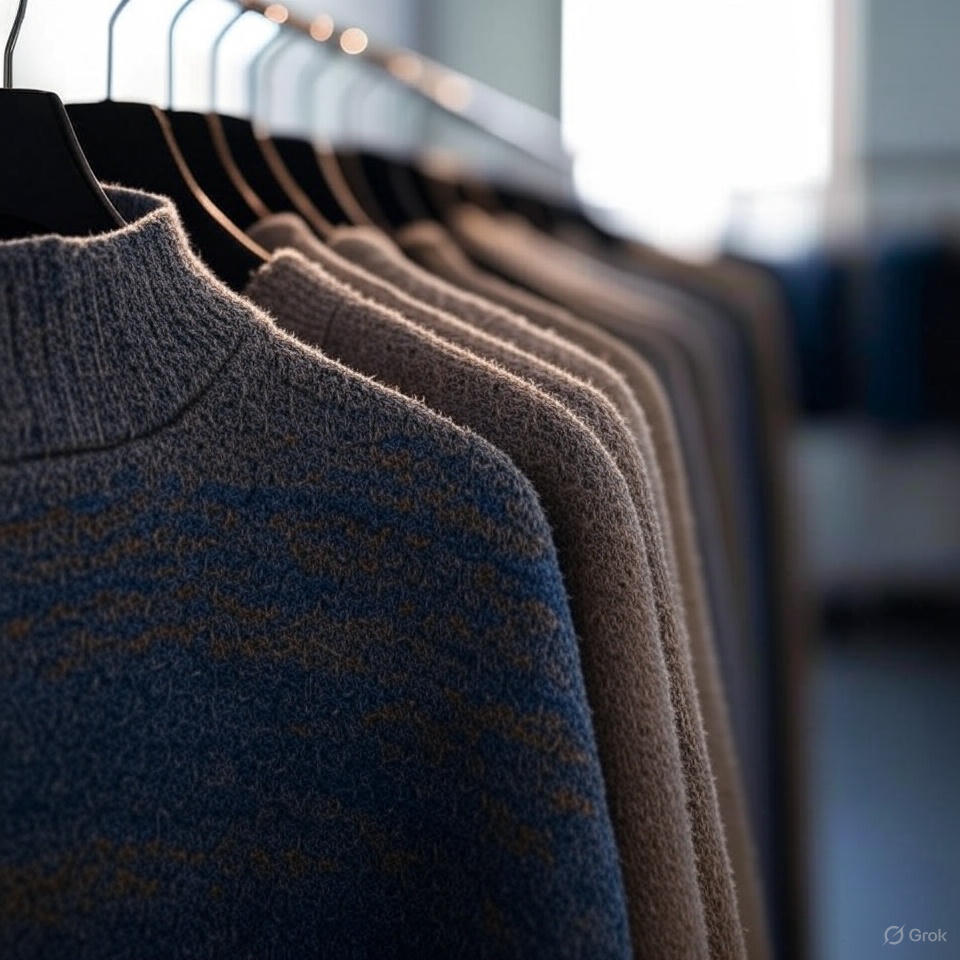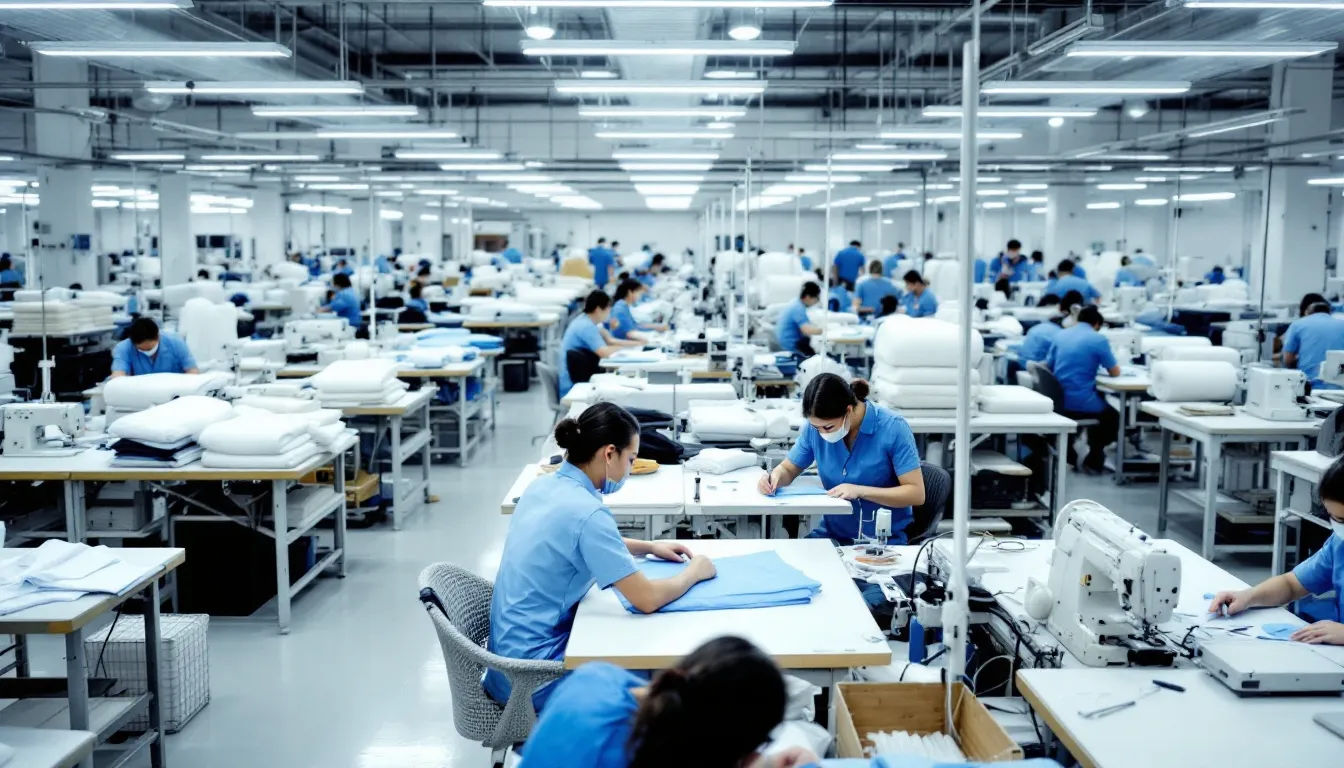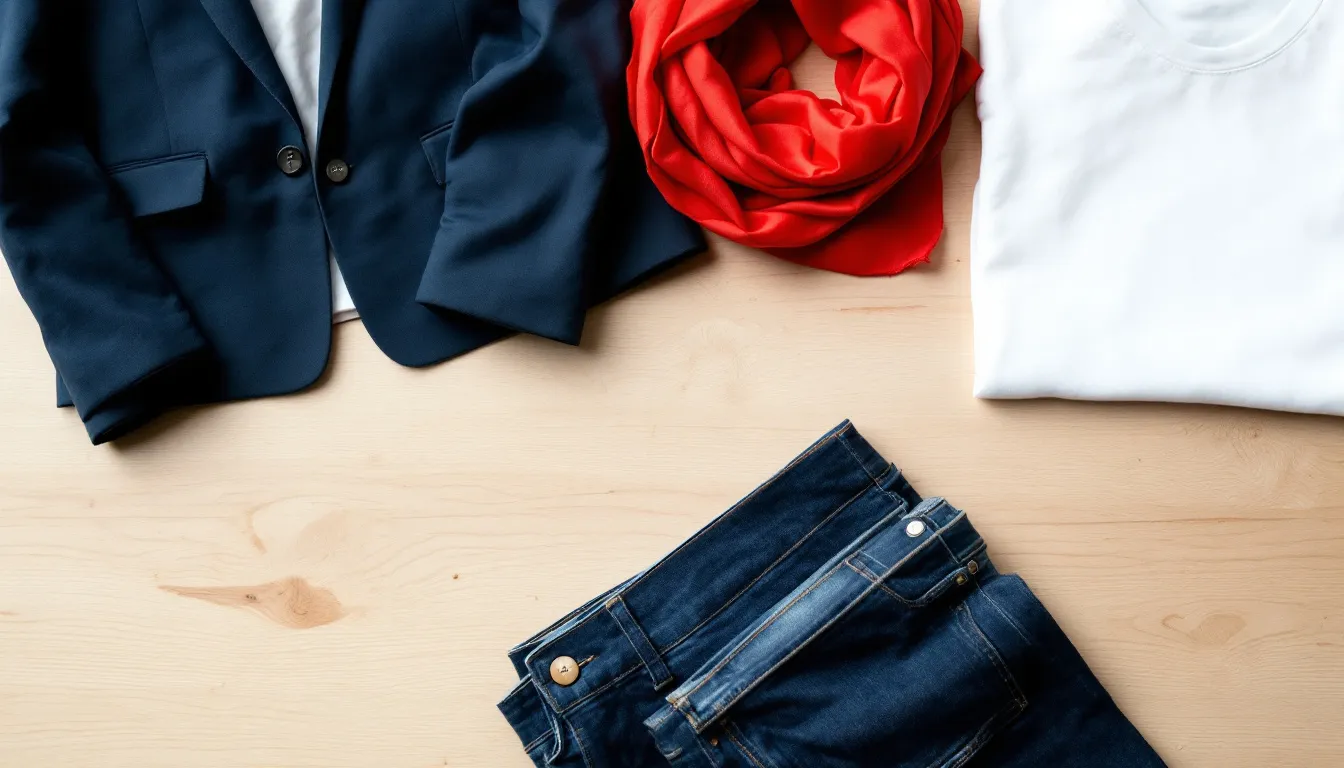
Manufacturer of Clothes: Complete Guide to Finding the Right Clothing Production Partner in 2025
Introduction: What is a Manufacturer of Clothes
A clothing manufacturer is a specialized company that produces garments from raw materials to finished products, serving fashion brands, retailers, and designers. The term apparel manufacturer is often used interchangeably, highlighting expertise in clothing production and the ability to deliver high-quality, customizable solutions for various businesses. In this guide, you’ll learn what clothing manufacturers do, how to find the right one, and how to establish successful partnerships that can transform your fashion brand.
Whether you’re launching a new brand or scaling an existing clothing line, choosing the right manufacturing partner is crucial for success. This comprehensive guide covers types of clothing manufacturers, selection criteria, production processes, and cost considerations to help you make informed decisions.
We’ll provide immediate confirmation of search intent for brands seeking production partners, from startups with unique design ideas to established fashion brands looking to optimize their manufacturing journey.
Understanding Clothing Manufacturers: Key Concepts and Definitions
Core Definitions
A clothing manufacturer transforms raw fabrics and materials into finished garments through specialized production processes. These companies handle everything from pattern making to final packaging options, serving as the backbone of the fashion industry. Additionally, some manufacturers operate as Cut, Make, Trim (CMT) factories, focusing solely on cutting, sewing, and trimming garments based on provided designs and materials.
Related terminology includes:
-
OEM (Original Equipment Manufacturer): Companies that produce garments based on your specifications and technical drawings
-
Private label manufacturers: Specialists who create clothing under your brand name using their existing designs
-
Cut-and-sew operations: Facilities that assemble garments from provided patterns and fabrics
The distinction between manufacturer, suppliers, and contractors is important - manufacturers handle the complete production process, while suppliers provide materials and contractors may handle specific services like screen printing or embroidery.
Types of Clothing Manufacturers
Full-service manufacturers offer a one stop shop approach, handling everything from pattern making to finished products under one roof. These companies typically work with established fashion brands and have higher minimum order quantities but provide more control over the entire manufacturing process. Full Production Package (FPP) manufacturers, in particular, are ideal for new or small brands as they manage the entire production process, simplifying the journey for emerging businesses.
Cut-and-sew operations focus on assembly from provided patterns and technical drawings. They’re often more cost effective for brands that handle their own design and pattern making processes.
Private label vs. custom clothing producers represent different approaches - private labels offer existing designs you can brand as your own, while custom manufacturers bring your own unique design to life through bespoke clothing production.
Domestic vs. overseas manufacturing options each offer distinct advantages. Local suppliers provide shorter turnaround time and more control, while international manufacturers often deliver better cost efficiency for mass production runs. For example, Inditex is renowned for its quick-response production model, enabling rapid transformation of designs into store-ready garments, showcasing the potential efficiency of well-structured manufacturing systems.

Why Clothing Manufacturers are Essential in Today’s Fashion Industry
The global apparel manufacturing market reached $759.5 billion in 2023, with clothing manufacturers enabling brands to reduce production costs by 40-60% compared to in-house production. This cost efficiency allows new brands to compete with leading brands while maintaining quality clothing standards. Many manufacturers achieve this by utilizing advanced technology and machinery to enhance production efficiency, ensuring high-quality output at competitive costs.
Scalability benefits are particularly important for growing fashion brands and startups. Manufacturing partners provide access to specialized equipment, experienced teams, and production capabilities that would be impossible for most clothing brands to develop independently.
Modern clothing manufacturers offer sophisticated customization options, from fabric selection to finishing touches, enabling brands to create distinctive products that stand out in competitive markets. The fashion industry increasingly relies on these partnerships to respond quickly to changing consumer demands while maintaining quality and cost effectiveness.
Key Metrics and Comparison Table
|
Manufacturer Type |
MOQ Range |
Lead Time |
Price Range |
Best For |
|---|---|---|---|---|
|
Small Domestic |
50-250 pieces |
7-20 days |
$15-35/piece |
New brands, samples |
|
Large Domestic |
500-2000 pieces |
15-30 days |
$10-25/piece |
Established brands |
|
International |
1000-5000 pieces |
30-60 days |
$5-15/piece |
Mass production |
|
Specialty Technical |
100-500 pieces |
20-40 days |
$25-50/piece |
Performance apparel |
Domestic vs. International Comparison:
-
Sample time: 3-7 days domestic vs. 10-20 days international
-
Communication: Real-time during business hours vs. time zone challenges
-
Quality control: Direct oversight vs. remote monitoring
-
Shipping costs: Lower domestically, calculated based on distance vs. international freight
Step-by-Step Guide to Finding and Working with Clothing Manufacturers
Step 1: Define Your Production Requirements
Begin by determining your specific product types - whether you’re focusing on t shirts, dresses, activewear, or specialized garments like jeans. Each category requires different expertise and equipment from potential partners.
Calculate your required quantities and budget constraints carefully. Most manufacturers have minimum order requirements that vary depending on garment complexity and customization options. Consider starting with smaller production runs to test market response before scaling up.
Prepare detailed technical drawings and specifications for your garments. A comprehensive tech pack should include:
-
Detailed measurements and sizing charts
-
Fabric selection preferences and material specifications
-
Construction details and finishing requirements
-
Labeling and packaging options
Consider sustainability and ethical manufacturing preferences early in your planning process. Many consumers now prioritize brands that demonstrate responsible manufacturing practices.
Step 2: Research and Evaluate Potential Manufacturers
Use platforms like Alibaba, Maker’s Row, and industry trade shows to identify potential partners. These platforms allow you to filter manufacturers by location, specialties, and minimum order quantities to find companies aligned with your needs.
Verify certifications and compliance standards. Look for manufacturers with relevant certifications like GOTS (Global Organic Textile Standard), OEKO-TEX for fabric safety, or SA8000 for ethical production practices.
Request samples from multiple manufacturers to evaluate quality standards, construction techniques, and attention to detail. Sample evaluation should include:
-
Fabric quality and feel
-
Stitching consistency and durability
-
Fit and sizing accuracy
-
Overall finishing quality
Check client references and factory compliance records. Reputable manufacturers should provide references from other clothing brands and demonstrate consistent quality and reliability.

Step 3: Establish Partnership and Begin Production
Negotiate terms including pricing, minimum order quantities, and payment schedules. Ensure contracts protect your intellectual property and specify quality standards, delivery timelines, and remedies for production issues.
Create detailed production timelines with clear milestones for pattern making, sampling, production, and shipping. Regular communication throughout the manufacturing journey helps prevent delays and ensures quality standards.
Monitor production progress through regular updates and quality control measures. Many manufacturers provide progress photos and updates, but consider third-party quality inspections for large orders.
Plan for shipping, customs (for international manufacturers), and inventory management. Factor these costs and timelines into your overall production planning and pricing strategy.
Manufacturing Process Optimization: Streamlining Your Production Journey
Optimizing the manufacturing process is essential for any clothing manufacturer aiming to deliver quality clothing efficiently and reliably. Our experienced team collaborates closely with clients—whether you’re a new brand launching your first collection or an established fashion brand scaling up—to understand your unique requirements and preferences.
From the initial stages of fabric selection to the final finishing touches, we streamline every aspect of the production journey. This approach not only minimizes delays but also ensures that every piece of bespoke clothing meets the highest standards. By leveraging advanced manufacturing techniques and a detail-oriented workflow, we help clothing brands and apparel manufacturers achieve their goals with greater speed and precision.
Our commitment to process optimization means you benefit from a smoother, more transparent experience, with clear communication at every step. Whether you’re producing a limited run of custom garments or managing a large-scale production, our focus on quality and efficiency ensures your brand stands out in the competitive world of clothing manufacturing.
Quality Control Measures: Ensuring Consistency and Excellence
Delivering consistent, high-quality clothing is at the heart of every successful clothing brand. That’s why our clothing manufacturing process includes rigorous quality control measures at every stage. From the initial technical drawings and pattern making to the final stages of mass production, our skilled team of pattern makers and quality control experts meticulously inspect each garment.
Collaborative Relationships: Building Strong Partnerships with Manufacturers
In the fast-paced fashion industry, building strong, collaborative relationships with your clothing manufacturer is key to long-term success. We believe that open communication and mutual trust are the foundation of every great partnership. Our team works hand-in-hand with local suppliers to source the finest fabrics and materials, ensuring that our clients receive the best value and quality for their investment. For instance, Lululemon has built its reputation by partnering with manufacturers specializing in high-end yoga and athletic apparel, demonstrating the importance of aligning with the right expertise.
As a one stop shop, we offer comprehensive solutions under one roof, making the manufacturing process seamless and efficient for clothing brands and apparel manufacturers. Our commitment to excellent customer service means we respond promptly to inquiries, address concerns quickly, and keep you informed throughout every stage of production.
By fostering long-term relationships with our clients and suppliers, we help brands grow their business and adapt to the ever-changing demands of the fashion industry. Whether you need a customized manufacturing solution or ongoing support, our team is dedicated to helping you achieve your goals and build a brand that stands out.
Clothing Manufacturing Trends in 2024
The clothing manufacturing landscape is evolving rapidly, and staying ahead of the latest trends is essential for brands looking to thrive in 2024. Sustainability remains a top priority, with more clothing manufacturers and brands embracing eco-friendly materials and ethical production methods. This shift not only appeals to environmentally conscious consumers but also sets brands apart in a crowded market.
Customization options are also on the rise, as shoppers seek unique, bespoke clothing that reflects their personal style. Leading manufacturers are meeting this demand by offering advanced services such as screen printing, embroidery, and a wide range of fabric and design choices. These innovations allow clothing brands to create distinctive apparel that resonates with their target audience.
By integrating the latest technologies and materials into the manufacturing process, top manufacturers help brands stay competitive and responsive to market trends. Whether you’re launching a new line or updating your existing collection, partnering with a forward-thinking clothing manufacturer ensures your brand remains relevant and in demand.
Brand Identity and Image: Setting Your Clothing Line Apart
In today’s fashion industry, a strong brand identity is more important than ever. As a clothing manufacturer, we understand that your clothing line’s image is what sets you apart from the competition. Our team works closely with clients to develop a cohesive brand strategy that covers every detail—from fabric selection and labeling to packaging options and customization.
We offer a variety of services to help you create a unique and memorable brand, including bespoke clothing, private labels, and tailored packaging solutions. These customization options allow both new brands and established fashion brands to express their vision and connect with their audience on a deeper level.
With a focus on quality clothing and meticulous attention to detail, we help fashion brands and apparel manufacturers build a brand image that inspires loyalty and drives growth. Whether you’re just starting out or looking to refresh your brand, our expertise in brand identity and image will help you achieve lasting success in the fashion industry.
Common Mistakes to Avoid When Choosing Clothing Manufacturers
Mistake 1: Choosing solely based on lowest price without considering quality and reliability. While cost effectiveness is important, the cheapest option often leads to quality issues, production delays, or hidden costs that exceed initial savings.
Mistake 2: Failing to verify manufacturer’s production capacity and current workload. Overcommitted manufacturers may delay your orders or compromise quality to meet unrealistic deadlines.
Mistake 3: Not securing proper contracts and intellectual property protections. Without clear agreements, you risk design theft, quality disputes, or production delays with no legal recourse.
Pro tip: Always request and thoroughly evaluate samples before committing to large orders. The sample quality directly indicates what you can expect from full production runs, and any quality concerns should be addressed before production begins.
Real-Life Example and Walkthrough
Case Study: Sustainable fashion startup increased production efficiency by 300% using the right manufacturer
Starting situation: A sustainable activewear brand was struggling with a manufacturer requiring 500-piece minimum orders and 8-week lead times. High minimum order quantities tied up cash flow, while long lead times prevented rapid response to market trends.
Steps taken:
-
Researched specialized sustainable clothing manufacturers with lower minimum orders
-
Identified a manufacturer offering 100-piece minimum order quantities
-
Negotiated terms that included organic fabric selection and eco-friendly packaging options. Packaging and labels were also designed to communicate and reinforce the brand's identity, helping to tell the brand's story and enhance the customer experience.
-
Established regular communication protocols and quality control checkpoints
Results achieved:
-
Reduced lead time from 8 weeks to 3 weeks
-
Decreased per-unit costs by 25% through better efficiency
-
Improved quality ratings from 3.5/5 to 4.8/5
-
Enabled testing of new styles with smaller investment risk
|
Metric |
Before |
After |
Improvement |
|---|---|---|---|
|
Lead Time |
8 weeks |
3 weeks |
62% reduction |
|
MOQ |
500 pieces |
100 pieces |
80% reduction |
|
Cost per unit |
$32 |
$24 |
25% savings |
|
Quality rating |
3.5/5 |
4.8/5 |
37% improvement |
This case demonstrates how the right manufacturer partnership can transform a clothing brand’s operations, enabling better cash flow management, faster market response, and improved product quality.
FAQs about Clothing Manufacturers
Q1: What is the typical minimum order quantity for clothing manufacturers? A1: MOQs vary from 50-100 pieces for small specialized manufacturers to 1000+ pieces for large factories, depending on garment complexity and customization level. T shirts typically have lower MOQs than complex garments like jeans.
Q2: How long does clothing production typically take? A2: Standard production time ranges from 15-30 days for domestic manufacturers and 30-60 days for overseas production, plus additional sample time. Rush orders may be available for premium pricing.
Q3: Can clothing manufacturers help with design and pattern making? A3: Many full-service manufacturers offer design support, pattern making, and technical development as part of their services. This is particularly valuable for new brands without in-house design teams.
Q4: What certifications should I look for in sustainable clothing manufacturers? A4: Key certifications include GOTS (Global Organic Textile Standard), OEKO-TEX for fabric safety, Cradle to Cradle, and Fair Trade certifications for ethical production practices.
Q5: How much does it cost to work with a clothing manufacturer? A5: Costs vary widely from $5-15 per basic garment to $25-50+ for complex designs, depending on materials, quantity, and manufacturer location. Additional costs may include sampling, pattern making, and customization options.

Conclusion: Key Takeaways for Choosing the Right Clothing Manufacturer
Successful partnerships with clothing manufacturers require careful evaluation of capabilities, values alignment, and production requirements. Prioritize manufacturers that demonstrate consistent quality, reliable communication, and ethical manufacturing practices over those offering only the lowest prices.
Balance cost considerations with quality, reliability, and ethical manufacturing practices. The right manufacturer becomes a strategic partner in your brand’s growth, not just a production vendor.
Start with small orders to test manufacturer capabilities before scaling up production. This approach minimizes risk while allowing you to evaluate quality, communication, and reliability firsthand.
Establish clear communication channels and detailed contracts to ensure successful partnerships. Regular updates, quality control measures, and defined expectations prevent most common production issues.
Next step: Use the provided evaluation criteria to assess potential manufacturers and request samples from your top candidates. Begin with a small production run to test the partnership before committing to larger orders that will define your brand’s future success.
The manufacturing journey for any clothing brand begins with finding the right partner who shares your vision and can deliver the quality your customers expect. Take time to research thoroughly, communicate clearly, and build relationships that will support your brand’s long-term growth in the competitive fashion industry.



Leave a comment
This site is protected by hCaptcha and the hCaptcha Privacy Policy and Terms of Service apply.